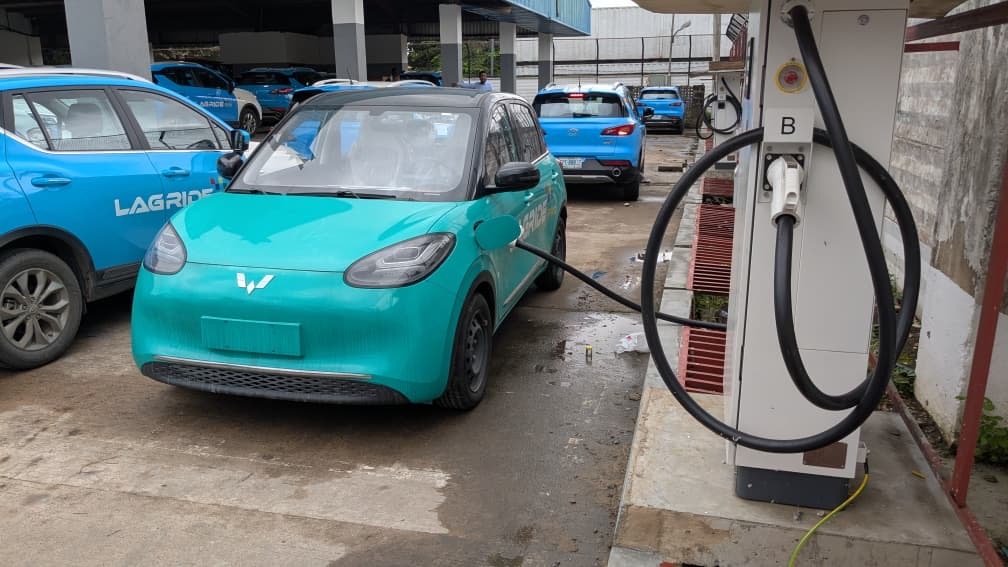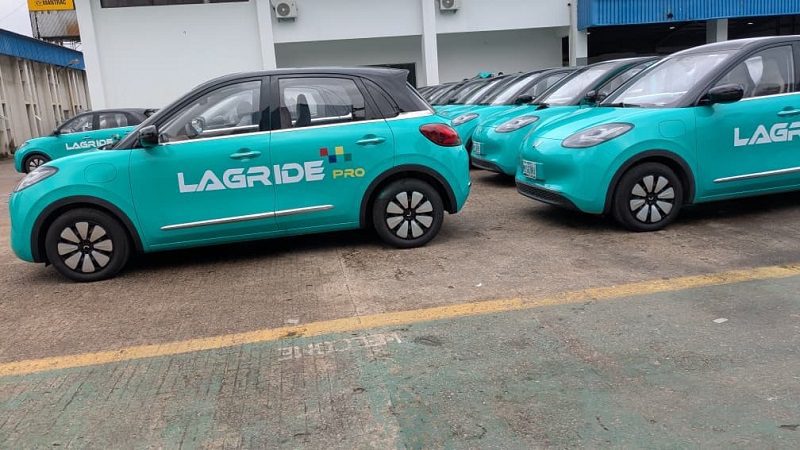Last September, Lagride introduced 100 fully electric vehicles (EVs) into the market. According to the company, the innovative shift would be powered by its high-performing drivers. However, some of these high-performing drivers said they feel they are being punished for their efforts instead of being rewarded.
According to them, the EVs lack the efficiency and durability required to maintain high performance. One major problem is that the company hasn’t provided enough charging ports. This has left the drivers spending hours on end waiting in queues to charge the vehicles.
“Since last night, I can’t charge the vehicle, and there are about 30 other vehicles in the queue in Victoria Island. In the end, I couldn’t get a full charge, and that is the experience of many other drivers. So how do I work when having to charge my battery is war?” one driver told Technext.
Even when they finally get some electricity into the car, the drivers say the batteries drain very quickly, especially when using air conditioning.
Thus, despite claims by Lagride that one full charge would last a full day, drivers insist they require at least two charges a day. As such, they are wary about travelling far distances because they need to be around their chargers
“The battery drains very fast. By my analysis, on a busy day, you will need at least two full charges. Therefore, you can’t go long distances with it. You can’t go to Ikorodu or Epe with it, I promise you, they will have to tow it back to Alausa. Because once you put on the AC, the battery drains one per cent every three minutes,” another driver said.

Another driver explained that from the business side of things, the smaller EV cars are doing a lot of damage to the clientele they have suffered to build over the years.
He noted that his customers are mostly airport travellers and they are demanding the bigger SUVs, which are suitable for large luggage. These clients are also important people, and they see the SUVs as fitting their status.
Consequently, the drivers are losing businesses and earnings.
“They called us top-performing drivers, yet they are punishing us with this car that will reduce ur performance. They just want to use us to push their EV. The new drivers are there; they should give them the new cars and leave us with our SUV,” one of the EV drivers lamented.
Another driver claimed that he tried to make an official complaint to the Relationship Officer (RO), but he was met with threats and humiliation.
“The RO told me that if I don’t want to switch to the EV, I should park the SUV and find my way. There are thousands of people looking for the opportunity to drive for them, and my complaint can’t move them. So if I want to work, I should go and collect the EV, and if I don’t want to work, I can get out. I felt threatened and humiliated,” he said.
Response from LagRide
Reacting to these claims, the Lagride spokesperson, Ifeanyi Abraham insisted that shifting high-performing drivers to the new electric vehicles was a reward, not a punishment.
According to him, the company selected high-performing captains to pioneer the EV rollout because they wanted disciplined and reliable professionals to lead Nigeria’s clean mobility transition.
“The EVs offer major financial and operational advantages. They eliminate fuel costs, require less maintenance and provide higher long-term margins. Being assigned an EV means the company trusts the captain to manage advanced vehicles that represent the future of mobility. This was a strategic empowerment decision, not a punitive one,” he said.


On the question of efficiency and battery strength, he explained that while the company is proactively expanding infrastructure and adding new charging locations, the EV’s current charging capacity exceeds daily utilisation.
He specified that the Lagride EV can cover 333 kilometres on a full charge, enough for an entire day.
He emphasised that Lagride’s internal data does not support the claim of prolonged waiting times, as the company operates multiple charging centres on both the Mainland and the Island with more than thirty active charging ports.
Finally, Mr Abraham noted that Lagride is setting a new benchmark for mobility across Africa, built on structure, accountability and opportunity, and remains committed to raising standards, improving livelihoods and supporting the mobility vision of Lagos.
“There has been pushback from those resistant to reform, but Lagride continues to make strong inroads by combining technology, transparency and training to uplift the entire ecosystem,” he finished.
Read also: LagRide drivers bemoan N100k daily remittance, low customer requests on app








